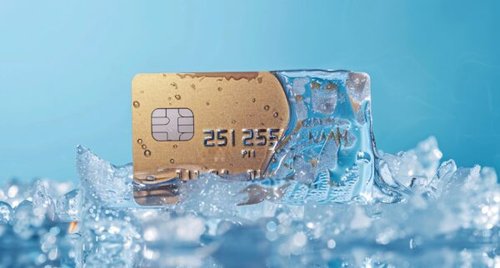Your credit score is a three-digit number that helps lenders determine whether you’re a reliable borrower who pays their bills on time. The idea behind credit scoring dates back to the late 1800s, when businesses started collecting information on customers’ creditworthiness. However, it wasn’t until the 1950s that credit bureaus began using a numerical system to rate an individual’s creditworthiness.
Having a good credit score is important because it helps determine interest rates on loans and makes it easier to get approved for a mortgage, auto loan or personal loan. Good credit also allows you to qualify for certain rewards credit cards.
Continue reading to learn more about what is considered a good credit score, how your credit score can vary, and steps to maintain a good or excellent credit score.
What is considered a good credit score?
Credit scores typically range from 300 to 850 and the higher the number, the better your credit score is. While there is no sole definition of a good credit score, if your credit score falls in the range of 670 to 739, this is considered “good” by most standards.
It’s important to realize you don’t just have one credit score since there are different types of credit scoring models as well as different credit bureaus (Experian, Equifax, and TransUnion).
Two of the most common credit scoring models are FICO® and VantageScore. FICO® was created by the Fair Isaac Corporation in 1989 and is used by more than 90% of lenders. VantageScore was created by the three major credit bureaus in 2006 as an alternative credit scoring model and it’s used by more than 3,000 banks and 3.7 billion credit card issuers.
What are the credit score ranges?
- Typically, a score above 800 is considered excellent.
- Scores between 670 and 799 are considered good or very good.
- A score between 580 and 669 is fair.
- A score below 500 is typically considered poor.
What is a good FICO® score?
A good FICO® score ranges from 670 to 739 while a very good score ranges from 740 to 799. FICO®’s scoring system takes into consideration factors such as payment history, length of credit history, amounts owed, the types of credit an individual has used, and new credit lines opened.
Here’s an overview of all the FICO® score credit ranges:
Poor
Fair
Good
Very Good
Excellent
FICO® Score
300-579
580-669
670-739
740-799
800-850
FICO® updates its scoring model regularly to release new FICO® score versions that lenders can use. However, it’s up to the lender to decide which FICO® score version it will use so your credit score may vary as a result. For example, FICO® recently released FICO® Score 10, but some lenders may want to continue with the widely used FICO® 8 or 9 versions.
FICO® also provides its own credit score versions for auto lenders as well as a FICO® Bankcard scoring model which helps card issuers better determine the likelihood that a borrower will be more than 90 days late on a credit card payment within the next 24 months.
What is a good VantageScore?
A good VantageScore ranges from 661 to 780. VantageScore’s scoring system takes into account factors like payment history, credit usage, length of credit history, and type of accounts when calculating credit scores.
Here’s an overview of all the VantageScore credit ranges:
Very Poor
Poor
Fair
Good
Excellent
VantageScore
300-499
500-600
601-660
661-780
781-850
Like FICO®, VantageScore releases new scoring models that can impact how your credit score is calculated and what lenders see. The most recent scoring model is VantageScore 4.0 which can be used to cover all credit industries including auto, banking, personal loans and credit cards.
➤ LEARN MORE:VantageScore vs. FICO® Score: A guide to understanding different credit scoring models
Why is a good credit score important?
Having a good credit score affects your ability to get approved for loans and credit cards, as well as the interest rate you will pay. Buying a home is such a large purchase that most people take out a mortgage to finance it. With a good or excellent credit score, you are more likely to lock in a lower mortgage interest rate and save thousands of dollars over the life of your loan.
A good credit score means you are less risky to lend money to, so lenders are more likely to approve your loan for the best terms. You may also qualify for better rewards credit cards with a good credit score or receive offers such as 0% APR financing for several months for your next auto loan. Some employers even check your credit score to verify your identity and reliability when it comes to paying your bills and debts.
What credit score is needed to buy a house?
When buying a house, a good credit score is important to get approved for a mortgage loan and receive the best terms. The minimum credit score required for a home will depend on the type of mortgage you are applying for. For a conventional loan, you typically need a credit score of 620 or higher to qualify, according to the Federal National Mortgage Association, Fannie Mae.
For an FHA loan which is a government-backed loan, you can qualify with a minimum score of 580. If your credit score is between 500 to 579 you can still qualify for an FHA loan but you will need to put at least 10% down.
What credit score is needed to buy a car?
Each lender has its own requirements so there is no standard minimum credit score required to get an auto loan. Still, it’s best to try to maintain a good credit score of 675 or higher to qualify for a lower interest rate and better loan terms.
If you have bad credit, you may still be able to work with some lenders that specialize in subprime loans. However, you may pay more loan fees than you would when working with a traditional lender like a bank or credit union.
How to get a good credit score
To get a good credit score there are several things you can do. Your credit score is made up of several factors including your payment history which impacts 35% of your credit score. This is followed by credit utilization, or the amount of debt you owe, new or recent credit (including hard inquiries), and credit mix or types of credit accounts used.
To help get a good credit score, consider these tips:
- Pay your bills on time. Late payments have a significant impact on your credit score. Set up automatic payments or reminders to ensure that you never miss a payment.
- Keep your credit use low. Maxing out credit cards or using more than 30% of your available credit can negatively affect your score. Try to keep balances around 10% to 30% of your limit.
- Build credit history. Having a lengthy credit history can also increase your credit score. If you are just starting to build credit, consider opening a secured credit card or becoming an authorized user on a trusted account.
- Monitor your credit score regularly. Checking your credit score allows you to track any red flags or errors that may be affecting it.
➤ LEARN MORE:How to dispute and fix credit report errors
From getting approved for loans and buying property to landing a job, a good credit score opens many doors. Credit cards are a great way to help you build and keep a good credit score by making regular payments to build positive payment history as well as keeping your total credit utilization below 30%.
Now that we’ve answered the common question ‘what is a good credit score?’, you can browse some of our best credit cards for good credit or our best credit card recommendations for bad credit if you are still working on rebuilding your score.



